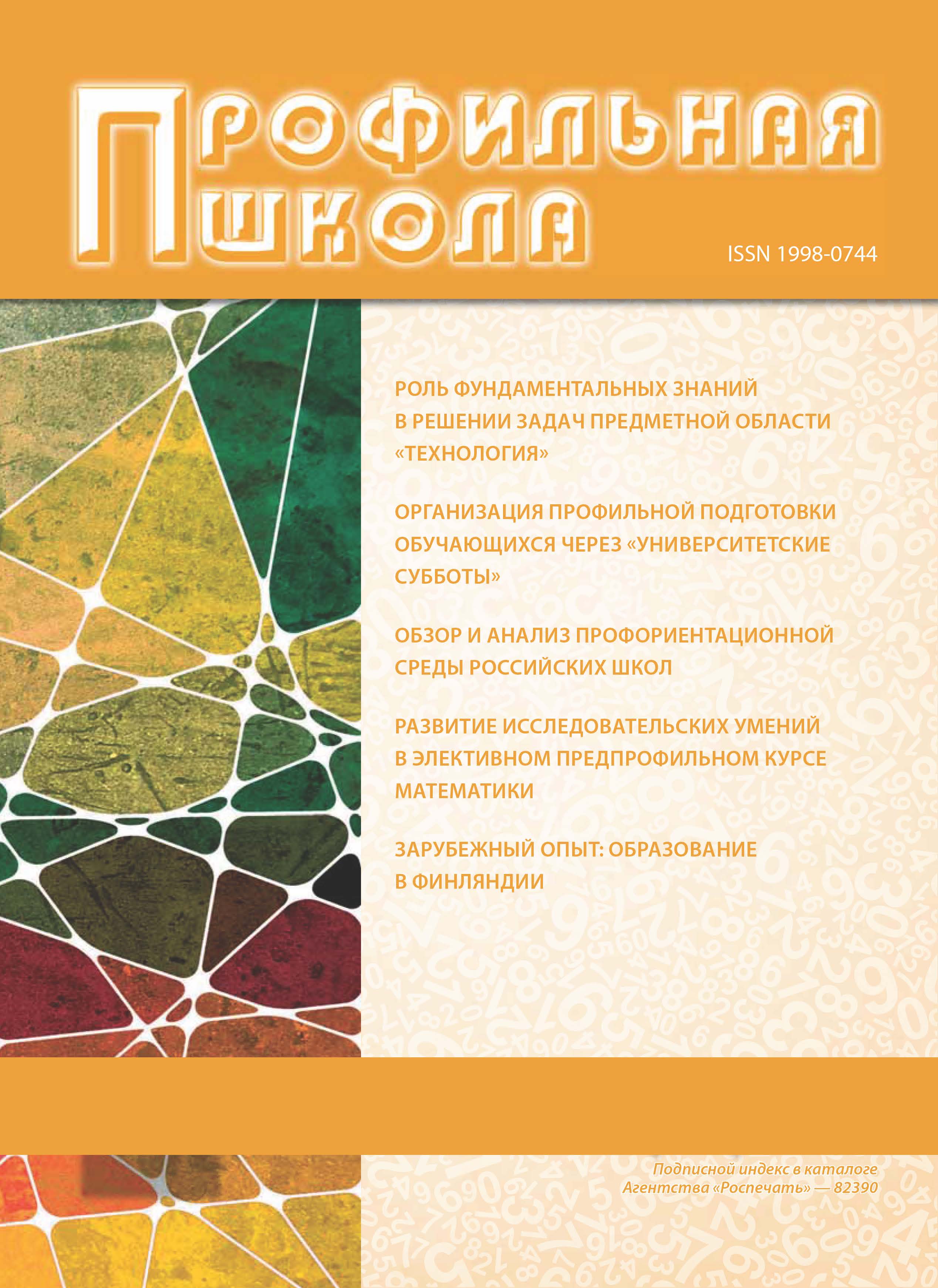Russian Federation
Russian Federation
Novosibirsk, Novosibirsk, Russian Federation
Russian Federation
Novokuzneck, Kemerovo, Russian Federation
Modern Russian society has experienced constant and signifi cant changes in recent years creating the need to reform the system of general and secondary vocational education and highlighting the problem of continuous vocational training. The article substantiates the idea of developing the theoretical and methodological foundations for advanced vocational training. It also shows the importance of this training for ensuring a sustainable innovative social and economic development of Russian regions. The article presents the goals and objectives of the study, describes the mechanisms of their implementation through The Centers for advanced training and the creation of appropriate conditions ensuring the integrity of the educational and production process. It also specifi es the development and testing of multi-level textbooks and teaching materials, the use of innovative technologies and various forms of interaction, including the creation of educational and industrial clusters on the basis of vocational education institutions. The authors of this study employ diff erent approaches and general scientifi c research, empirical, dialectical, experimental and specifi c sociological methods such as conversation, questioning, testing and pedagogical observation.
advanced vocational training, secondary vocational education, integration and interaction, educational and industry cluster.
1. Bibik V.L., Palyanov M.P., Morozova M.V., Lysenko V.G. Nepreryvnoe tekhnicheskoe obrazovanie: opyt Germanii i Rossii [Continuing technical education: the experience of Germany and Russia]. Professional’noe obrazovanie. Stolitsa [Professional education. Capital]. 2014, I. 6, pp. 36-40. EDN: https://elibrary.ru/SGYRGX
2. Zhukov G.N., Pakhomova E.A. Strategiya operezhayushchego professional’nogo obrazovaniya [The strategy of advanced vocational education.]. Professionalnoe obrazovanie v Rossii i za rubezhom [Professional education in Russia and abroad]. 2010, I. 1, pp. 60-63.
3. Zeer E.F. Psihologiya professij [Psychology of professions]. Moscow, Akademicheskij Proekt Publ., Ekaterinburg, Delovaya kniga Publ., 2003. 336 p. EDN: https://elibrary.ru/QXGPCR
4. Ivanova S.V., Pakhomova E.A., Palyanov M.P., Rudneva E.L. Professional’noe obrazovanie i zanyatost’ molodezhi - global’naya problema XXI v. [Vocational education and youth employment is a global problem of the 21st Century]. Pedagogika [Pedagogy]. 2013, I. 8, pp. 43-51.
5. Kasatkina N.E., Pakhomova E.A., Rudneva E.L. Formirovanie professional’nogo samoopredeleniya obuchayushchikhsya v usloviyakh regional’nogo rynka truda kak faktor ustoychivoy zanyatosti [Formation of professional self-determination of students in the conditions of the regional labor market as a factor of sustainable employment]. Vestnik Kemerovskogo gosudarstvennogo universiteta kul’tury i iskusstv [Bulletin of the Kemerovo State University of Culture and Arts]. 2015, I. 31, pp. 181-188. EDN: https://elibrary.ru/UJKFNR
6. A. Motivatsiya i lichnost’ [Motivation and personality]. St. Petersburg, Piter Publ., 2014. 400 p.
7. Novikov A.M. Printsipy postroeniya sistemy nepreryvnogo professional’nogo obrazovaniya [Principles of constructing a system of continuous professional education]. Pedagogika [Pedagogy]. 2005, I. 5, pp. 11-19.
8. Novikov P.N., Zuev V.M. Operezhayushchee professionalnoe obrazovanie [Advanced vocational education]. Moscow, 2000. EDN: https://elibrary.ru/VAABZH
9. Palyanov M.P., Nikolaev V.A., Masyukov O.A., Yankin D.V., Kharina N.V. Formirovanie professional’nogo samoopredeleniya obuchayushchikhsya v usloviyakh obrazovatel’no-tekhnologicheskogo klastera [The formation of learners’ vocational self-determination in the environment of an educational and technological cluster]. Profil’naya shkola [Profession-Oriented School]. 2018, Vol. 6, I. 2, pp. 38-48. DOI: https://doi.org/10.12737/article_5ae474943f65f2.99838238; EDN: https://elibrary.ru/XOINUT
10. Palyanov M.P., Pevin M.A., Romanchenko M.K., Sirmolotov I.V., Kholina L.A., Kharina N.V. Innovatsionnye pedagogicheskie tekhnologii kak osnova operezhayushchey podgotovki v professional’nykh obrazovatel’nykh organizatsiyakh [Innovative pedagogical technologies as a basis for advanced training in professional educational organizations]. Professionalnoe obrazovanie v Rossii i za rubezhom [Vocational education in Russia and abroad]. 2016, I. 4 (24), pp. 84-91. EDN: https://elibrary.ru/XEPJEJ
11. Pakhomova E.A., Palyanov M.P., Lysenko V.G., Sergienko Y.P. Nepreryvnoe professional’noe obrazovanie i zanyatost’ molodezhi [Continuing professional education and youth employmen]. Sibirskij pedagogicheskij zhurnal [Siberian Pedagogical Journal]. 2014, I. 5, pp. 49-54. EDN: https://elibrary.ru/SXKQYD
12. Sinenko V.Y., Palyanov M.P., Shekhovtsova D.N., Masyukov O.A., Zakirzyanov T.R. Mnogourovnevyy uchebno-metodicheskiy kompleks kak sredstvo razvitiya metapredmetnykh kompetentsiy [Multilevel educational and methodical complex as a tool for developing meta-subject competencies]. Sibirskij uchitel [Siberian teacher]. 2017, No 6, pp. 78-86. EDN: https://elibrary.ru/YSIMJT
13. Smirnov I.P. [et al.] Teoriya i praktika modernizacii professionalnogo obrazovaniya Rossii i SSHA [Theory and practice of vocational education modernization in Russia and the USA]. Tomsk, Kemerovo, Novosibirsk, 2012. EDN: https://elibrary.ru/RQJOXZ
14. Palianov M., Loyko O., Druga S., Park O. Modern Professional Education in the Global Society: Comparative Study. Procedia - Social and Behavioral Sciences, 2015, No 206, pp. 464-468.
15. Palyanov M.P., Mavrina I.A., Milinis O.A., Churekova T. M., Kharina N.V., Demchenko A.R. Th eoretical and methodological basis of advanced professional training for specialists engaged in secondary vocational education // Modern Journal of Language Teaching Methods Vol.8. Issue 5, May 2018. P. 243-262. ISSN: 2251-6204 (SCOPUS). EDN: https://elibrary.ru/NWROJK






